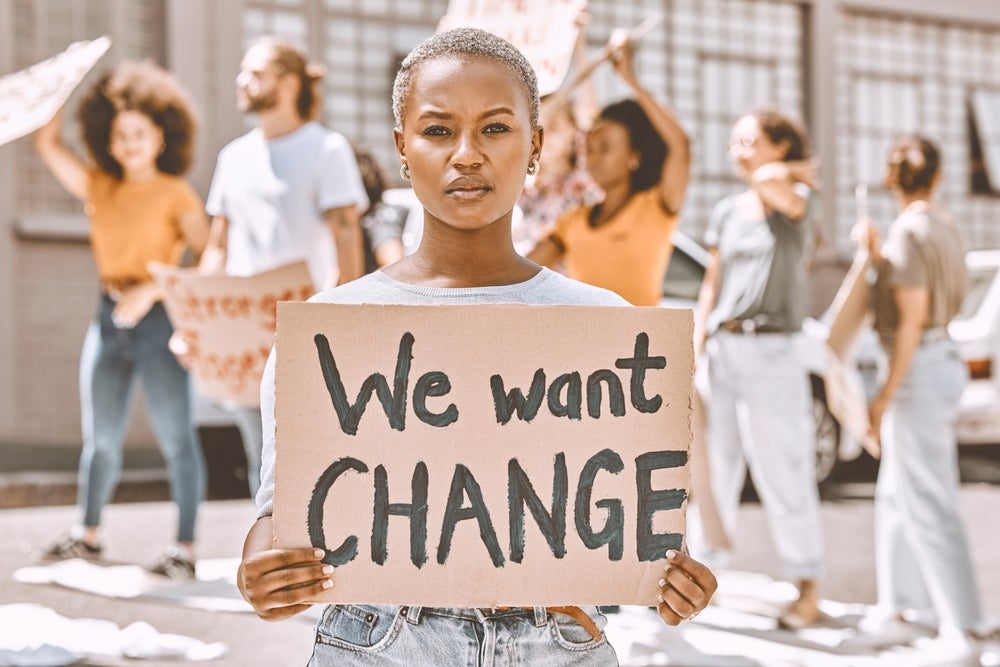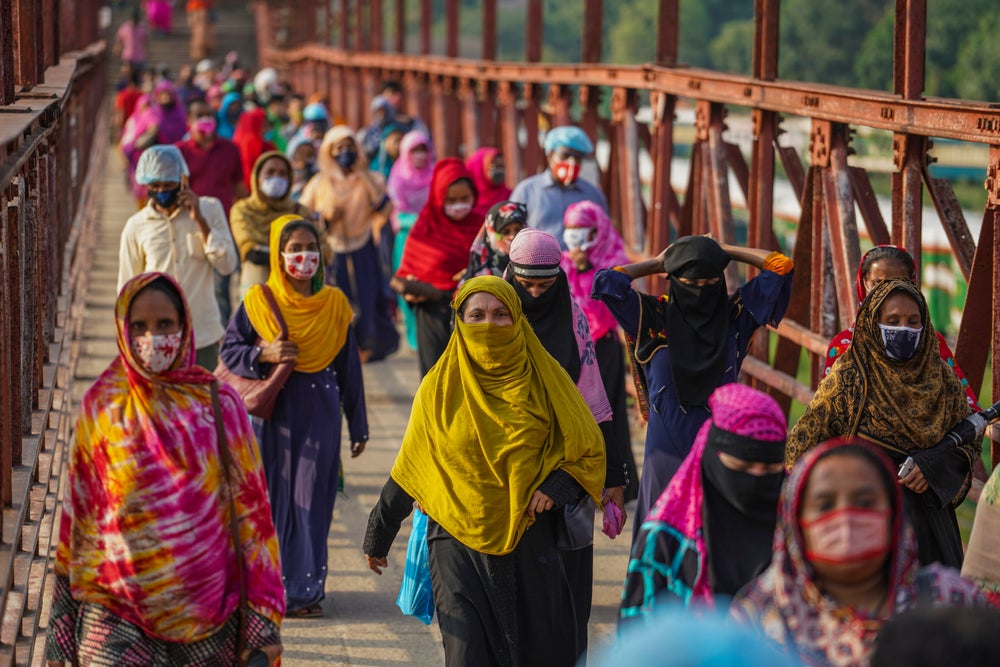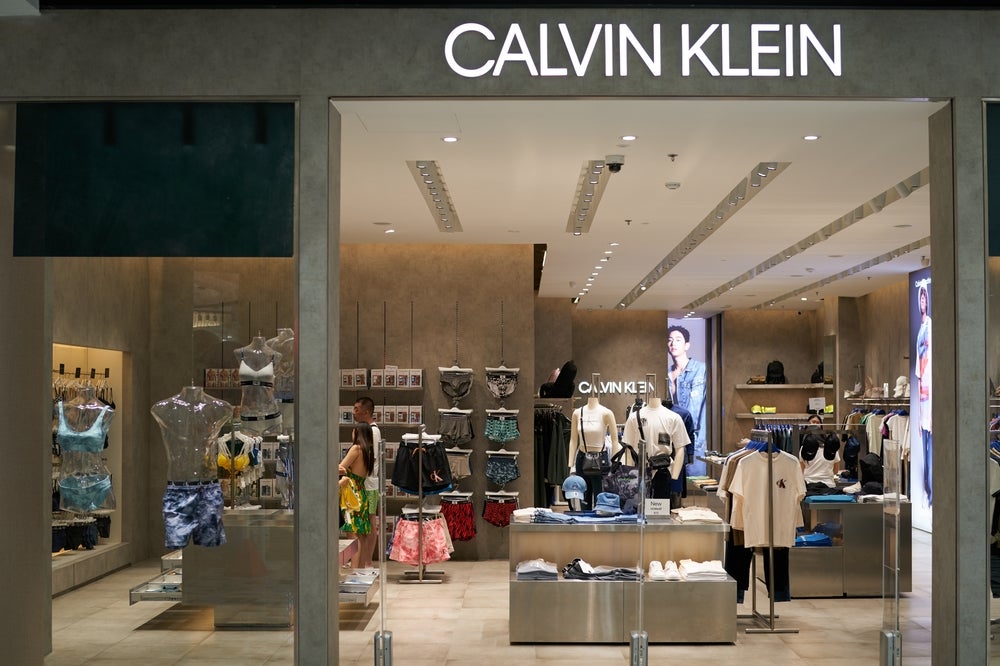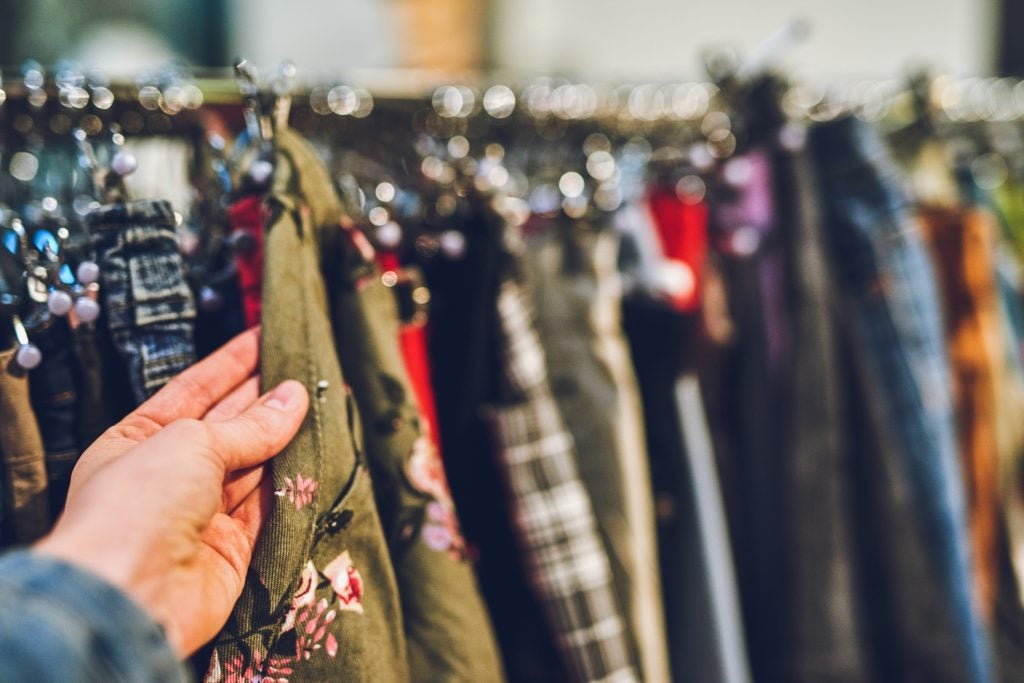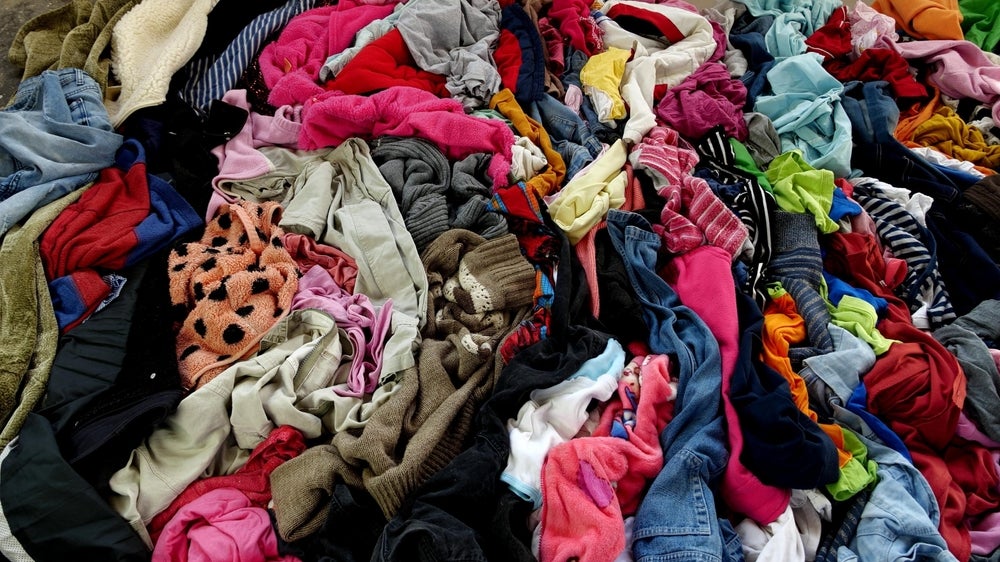A lot of conversations have started on the back of the Labour Behind the Label rally on 1 October but the organisation's campaigns and activism lead Alena Ivanova admitted during a campaigns meeting held in Leicester that it's not going to be a "quick win".
She explained: "Output from the rally and media and messages of solidarity with workers in Leicester have come from all over the world and from key production countries such as India, Pakistan, Sri Lanka."

Leicester garment workers receive support from global production countries
Ivanova added that when fashion brands "abandoned" Leicester they maintained production in other countries and workers in these countries recognise that Leicester's workers experience the same struggles.
The rally was deemed "successful" and Ivanova believes it showed to the press and all involved how frustrated and dissatisfied workers are with the lack of pay and conditions.
She was thrilled that over 500 people turned up for the rally and suggested it shows people are worried about their livelihoods so are willing to be visible and go out in groups.
She added: "There were factory owners at the event too so in that sense it was a great success."
Another plus point, she argued was the renewed interest from journalists wanting to speak to garment workers and Labour Behind the Label is trying to facilitate that as much as possible: "Without the media focus it’s harder to make people respond and politicians and other stakeholders pay attention."
Since the rally, Labour Behind the Label has written a series of letters to UK brands – not just the brands producing in Leicester, with Ivanova noting: "we know that number is reducing but we also contacted brands that used to produce in Leicester."
She explained that many fashion brands largely benefit from the ‘made in UK’ label as they know this sells.
"This is an angle we’re also trying to exploit and drive home with brands to help them explore more sustainable production because there's less carbon footprint as well as more ethical conditions with better contracts, pay etc," she said.
Labour Behind the Label writes to UK brands no longer manufacturing in Leicester
Ivanova continued: "We’ve been pushing UK brands – not just the ones you currently see in the workshops around Leicester but also Next, Marks & Spencer (M&S), Asda and others – that used to have more of a presence in the city but no longer produce here to have some conversations on how they could trial different lines – maybe more specialised lines and combining it with a sustainability angle that we know companies are interested in from a marketing perspective."
An Asda spokesperson said: “Asda is committed to upholding our Standards for Suppliers and maintaining decent working conditions for workers. We continue to work closely with suppliers in Leicester, where we predominantly undertake printing, this is via direct engagement, our social compliance programme and additional due diligence steps. However we realise there are existing challenges which need further attention and via industry groups we are looking to work towards these improvements and we will continue to engage with Labour Behind the Label in their campaign.”
Next and Marks & Spencer had not responded to Just Style's request for comment at the time of going to press.
Labour Behind the Label has also been talking to MPs and explained Leicester's deputy mayor has written to the government and said it’s an urgent issue for Leicester.
Ivanova admitted that December is when everything slows down from a UK government perspective so she's not expecting much more engagement on the parliamentary side, but she said: "We’re awaiting for a response from the government."
Meanwhile the public position Labour Behind the Label launched and the rally itself and the public petition is still out there and is being pushed by partner organisations.
She remains hopeful that in January the fight will be in a better place with "a critical mass of MPs" tackling the issue and "we will have a stronger voice from the trade unions as well".
Alongside positive engagement and dialogue with brands following the letters that have been sent out and more numbers on the petition with a bigger block of supporters going to parliament and taking demands there.
She concluded: "Our role is to be as persistent, loud and annoying to our elected representatives as possible so they don’t feel they can ignore us and we can tackle it from that angle as well."


